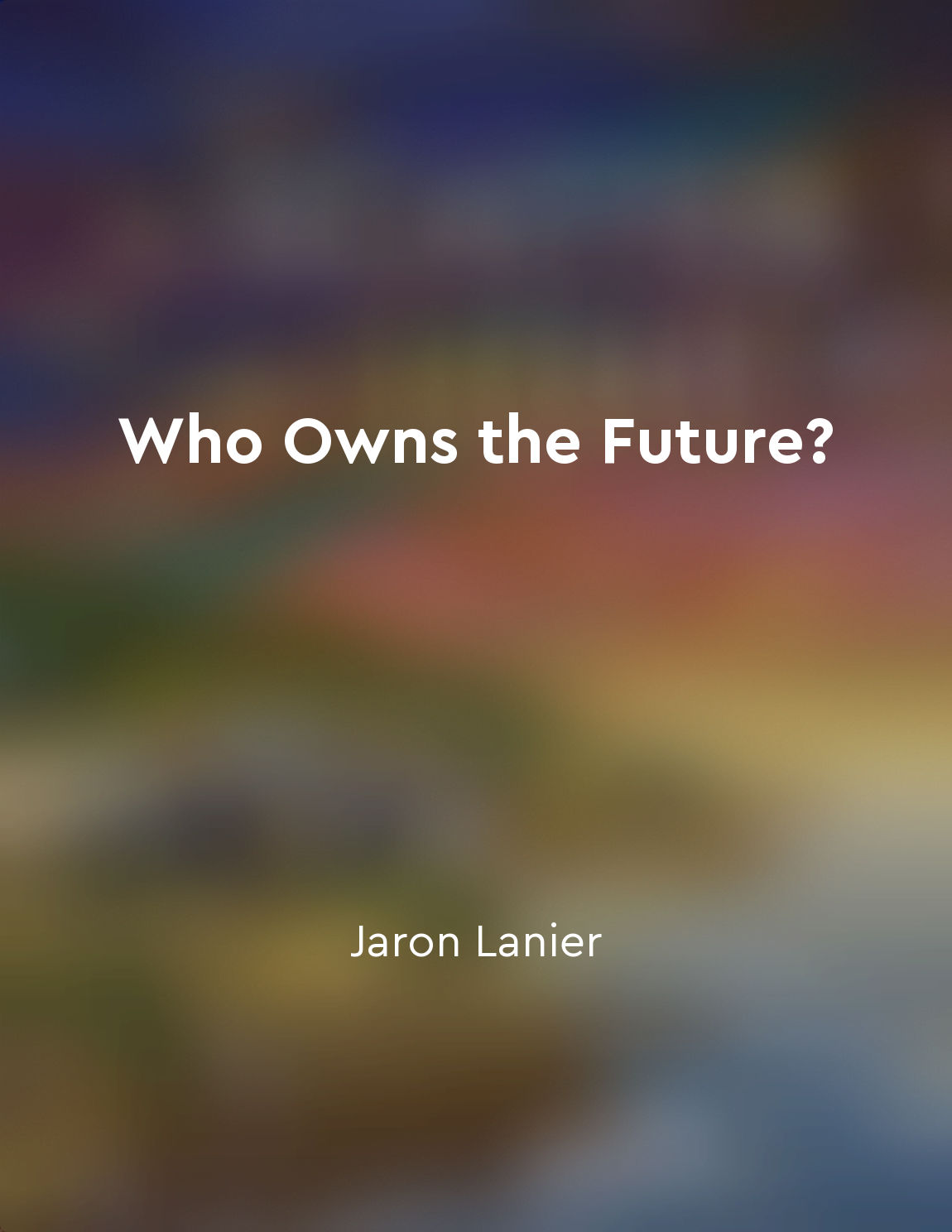Information wants to be free from "summary" of The Future of Ideas by Lawrence Lessig
The idea that information wants to be free is not a new one. It has been around for decades, championed by many in the tech industry as a fundamental principle of the digital age. But what does it really mean? At its core, it is a belief that information should be shared and made accessible to all, without barriers or restrictions. This concept challenges traditional notions of property and ownership, arguing that information is a public good that should be freely available to everyone. In the context of the internet and digital technologies, this idea takes on a new significance. The internet has revolutionized the way we create, share, and consume information, making it easier than ever to distribute knowledge on a global scale. This has led to a democratization of information, empowering individuals to access a wealth of resources and ideas that were previously out of reach. However, this democratization is not without its challenges. As information becomes more freely available, questions arise about how to protect intellectual property rights and ensure fair compensation for creators. The tension between the free flow of information and the need to incentivize innovation is at the heart of many debates surrounding copyright law and digital rights management. In the book "The Future of Ideas," Lawrence Lessig explores these issues and argues for a balance between the freedom of information and the protection of intellectual property. He advocates for a legal and regulatory framework that encourages creativity and innovation while also safeguarding the rights of content creators. Lessig suggests that a flexible approach to copyright law, one that recognizes the importance of both free expression and commercial interests, is essential for fostering a vibrant and diverse cultural landscape.- The concept that information wants to be free is a powerful reminder of the transformative potential of the digital age. By embracing this idea and working towards a more open and inclusive information ecosystem, we can unlock new possibilities for creativity, collaboration, and knowledge sharing.
Similar Posts
Leveraging assets can generate additional income
One of the key strategies for creating wealth is to leverage your assets in order to generate additional income. This means usi...

Data should not be centralized in the hands of a few powerful corporations
A central idea in 'Who Owns the Future?' is the danger of allowing data to be controlled by a small number of powerful corporat...

Rise of civilizations marked by agricultural revolution
The rise of civilizations is a process that can be traced back to the agricultural revolution. This pivotal moment in human his...

Society must adapt to the changing nature of work in the digital era
The digital era has brought about significant changes in the nature of work, requiring society to adapt accordingly. With the r...

